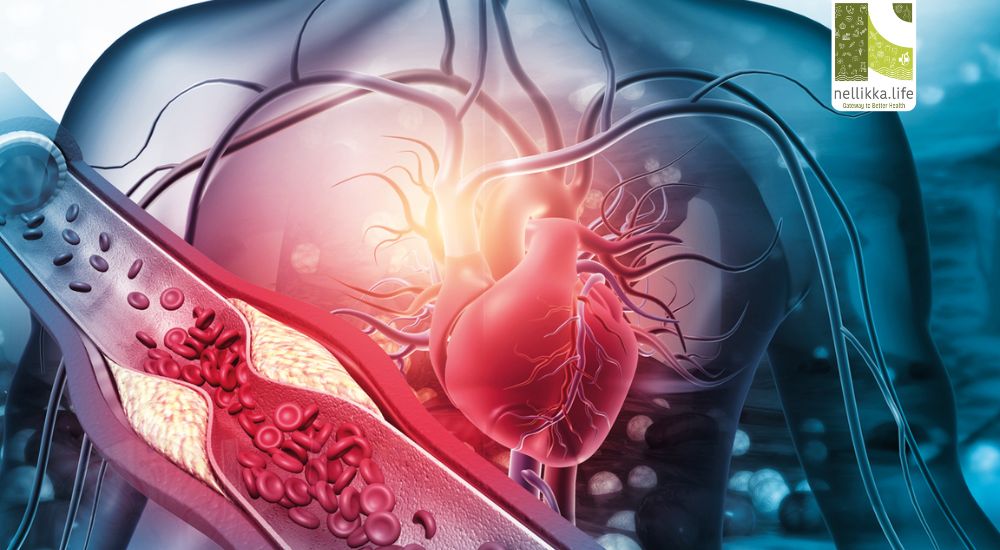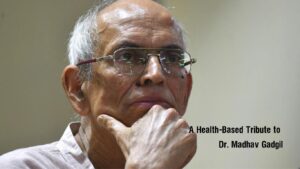Coronary Heart Disease (CHD): The Silent Strain on the Heart

Coronary Heart Disease (CHD) is one of the leading causes of death worldwide—and in India, it’s on a sharp rise, especially among people under 50. Despite being largely preventable, CHD continues to grow due to lifestyle changes, poor dietary habits, and lack of awareness. At nellikka.life, we believe in empowering our readers with medically accurate and actionable information.
This blog explores CHD in detail—its causes, symptoms, risk factors, and what you can do to protect your heart.
What Is Coronary Heart Disease (CHD)?
CHD, also known as Ischemic Heart Disease, occurs when the coronary arteries—the blood vessels supplying oxygen-rich blood to the heart—become narrowed or blocked due to plaque build-up (atherosclerosis). This limits blood flow, which can eventually lead to angina (chest pain), heart attacks, or heart failure.
Causes and Risk Factors
CHD develops gradually over time. The main culprits include:
🔸 Unhealthy Diet
High intake of saturated fats, trans fats, salt, and sugar can accelerate plaque buildup.
🔸 Lack of Exercise
A sedentary lifestyle increases obesity and weakens the heart over time.
🔸 Smoking and Alcohol
Tobacco damages blood vessels and reduces oxygen in the blood. Excess alcohol raises blood pressure and cholesterol.
🔸 High Blood Pressure and Cholesterol
Both increase the strain on the heart and promote atherosclerosis.
🔸 Diabetes
High blood sugar can damage blood vessels and significantly increase CHD risk.
🔸 Stress and Mental Health
Chronic stress raises blood pressure and contributes to inflammation, which harms the arteries.
🔸 Family History and Age
Genetic predisposition and aging can raise your CHD risk even in the absence of other factors.
Common Symptoms of CHD
CHD can remain silent for years. When symptoms appear, they may include:
- Chest pain or discomfort (angina), especially after physical activity or stress
- Shortness of breath
- Fatigue and weakness
- Palpitations
- Nausea or dizziness
- Heart attack (sudden, severe chest pain, shortness of breath, sweating)
Note: Women may experience more subtle symptoms such as fatigue, back pain, or jaw pain rather than classic chest pain.
Diagnosis and Tests
Doctors use a combination of medical history, physical exam, and tests such as:
- ECG (Electrocardiogram)
- Echocardiogram
- Stress test
- CT Coronary Angiogram
- Cardiac catheterization (Angiography)
- Lipid profile and blood sugar tests
Treatment Options
Treatment depends on the severity of the disease and may include:
Lifestyle Changes
- Healthy diet (low-fat, high-fiber, less salt and sugar)
- Regular physical activity (at least 30 minutes/day)
- Weight management
- Stress reduction techniques like yoga or meditation
Medications
- Statins (cholesterol-lowering)
- Beta-blockers or ACE inhibitors (to reduce blood pressure)
- Antiplatelet drugs (e.g., aspirin)
- Diabetes control medications
Surgical Interventions
- Angioplasty and Stenting
- Coronary Artery Bypass Graft (CABG)
Prevention: Protecting Your Heart Starts Early
Most cases of CHD are preventable. Here’s what you can do today:
- Quit smoking
- Choose home-cooked meals over processed food
- Walk, swim, or cycle regularly
- Monitor blood pressure and cholesterol
- Sleep well and manage stress
- Get regular checkups, especially if you have risk factors
When to See a Doctor?
Don’t ignore the warning signs. Seek medical help if you experience:
- Unexplained chest discomfort
- Shortness of breath
- Fainting spells
- A strong family history of heart disease
India’s Alarming Statistics
- According to the Indian Heart Association, 50% of heart attacks in Indian men occur under age 50, and 25% under 40.[1] [2]
- South Asians are at a 4x higher risk of CHD than other ethnicities. [3]
This makes early lifestyle intervention and regular screening essential.
CHD may be a global problem, but its roots often lie in personal lifestyle choices. The good news? It’s largely preventable and manageable with the right awareness and timely action.
Let’s break the silence around heart health. Let’s shift from treatment to prevention. And let’s build a heart-healthy nation, one mindful step at a time.
Stay informed. Stay active. Stay heart-strong.
— Team nellikka.life
References
1. Cardiovascular diseases (CVDs)
2. About Coronary Artery Disease (CAD)
3.Coronary Artery Disease – Coronary Heart Disease
4.Coronary Heart Disease
5.Heart disease in Indians
6.Coronary Artery Atherosclerosis





